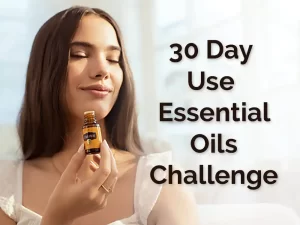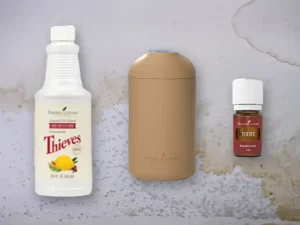Aren’t essential oils just nice smelling things? Can you really use essential oils with horses? Of course but only if they are 100% pure. Quality really does make a difference even with our animals. It pays to know a little bit about what makes a high quality essential oil, which you can learn more about here.
Horses tend to respond very well to essential oils since they are herbivores and have metabolic pathways to break down most oils. Horses are similar to people. They take in plants everyday. They are not only eating them but they are breathing them in. Who loves being outside in nature and how uplifting it feels? Who likes the smell of cut grass? There are certain aromas that when we smell them they bring back memories both good and bad. That’s because smell is linked to the limbus or emotional part of the brain. So by just smelling something that’s natural, pure and that we like can make us feel uplifted. It’s the same for horses. Horses tend to prefer the inhalation and licking methods used with oils.
Who is responsible for your horses healthcare?
Who is there each day looking after your horse? Of course you would call a vet when needed but on a daily basis there are a lot of things you can do. Essential oils can be used for numerous equine conditions. For physical issues, you can dab the oil directly on the affected location. For emotional issues, let your horse inhale the essential oil and you can dab it on their forehead or poll.
How do I know which essential oils to use?
If a horse turns his head away from an essential oil when you let him sniff it, s/he is showing you that he doesn’t like that essential oil. If a horse likes an essential oil they can exhibit the Flehmen response where they curl back their lip and try to draw more of the scent in. I know I’m on to something they like when they do this. They even go for the bottle and try to nuzzle it out of your hand!

I also like to Muscle test the oils to see which is the right one for a particular horse.
Are there safety considerations I need to know?
Yes there are. Just like with humans you need to exercise common sense.
- Never put oils in the eyes, ears and nasal cavity.
- Always Dilute as horses skin is very sensitive. They can feel flies on their skin much more than we can. You don’t want your horse to develop a skin sensitisation so always dilute.
- Some essential oils such as citrus oils and even blends are photosensitive and can cause skin pigmentation so as horses are mostly outdoors there essential oils are best avoided.
What can I use essential oils for with my horse?
Here are some specific conditions and essential oils which can help to remedy them.
Lavender for calming. Calming before you put your horse in a float. Calming after they have been injured so they don’t go in to secondary shock. Let them smell it or if they are really distressed put some diluted on their poll between their ears.
Purification is a great oil to include in shampoos or wipe on to bridles as it contains citronella and lemongrass, two oils which make the outdoors a little more bearable for us and them.
Panaway is great for rubbing on muscles after an event. It can be quiet warming to the skin and goes a long way if mixed with a carrier oil such as V6 or coconut oil.
Oregano to clean down stalls. Mix up 5 drops in a spray bottle of distillers water. When diluted with a carrier oil it can be used topically if they have been a little to adventurous. I like to mix oregano with Epsom salts and then add to water for soaking horses feet for 15 minutes. It can leave ketone markers internally so only use it when you need to.
I find the raindrop technique is great for horses. I drip oregano, thyme, basil, cypress and aromaseiz essential oils along the spine.
Essential oils are great to massage in to different acupressure points such as the stomach point.
Wintergreen for tired muscles in an emergency but not long term as it leaves ketone markers behind in the liver and the kidneys and the horse has trouble flushing these out. Over the long term the horse is at greater risk of cushings which is like our diabetes.It contains methyl salicylate the main ingredient in aspirin. 1 x 30ml bottle is the equivalent of 171 aspirin tablets.
Lemon oil is a great addition to their water when travelling to events and shows as it helps to coverup any changes in the taste of water.
Emotional Use
Grounding and Valor essential oil blends are great for transporting horses.
Harmony essential oil blend is great when you introduce a new animal to your paddock. Just a drop in your palm and then pay your horse.
Supplements
Horses love the Young Living supplements such as Ningxia Red and Sulfurzyme. These are great if you are training for a big event and want optimal performance from your animal.
Hygiene
The Animalscents shampoo is especially formulated for use on horses and dogs. It adds an extra shine to their coat without the nasty toxins such as Sodium Laurel Sulphate that is in most shampoos.
The Kidscents Tendertush or Thieves Ultra Toothpaste are great for making a poultice with oils mixed in if you need extra protection.
Important Note: Always consult your veterinarian if your horse has a serious condition. Essential oils are not meant to be a substitute for responsible veterinary care.
Please contact me if you would like further information or if you would like to get started using essential oils with your horse you can click here. Happy Horsey Oiling!!!










 Subscribe to Hot Oily Mumma
Subscribe to Hot Oily Mumma